Michele Perrault – new Sierra Club oral history release
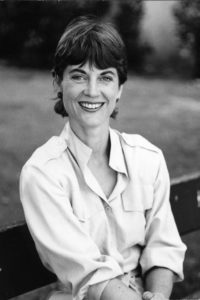
Michele Perrault twice served as national president of the Sierra Club, from 1984-1986 and from 1993-1994. She became the first female president of the Sierra Club in the modern era, since it became a nation-wide and then international organization with a multi-million-dollar operating budget. Environmental education, protecting nature, and extensive networking emerged as key themes in Perrault’s life as an environmental activist and leader. Perrault’s oral history is the first interview in the renewed Sierra Club Oral History Project—a long-standing collaboration between the Sierra Club and the Oral History Center at UC Berkeley that has, over the prior half century, preserved the Sierra Club’s past through oral history interviews.
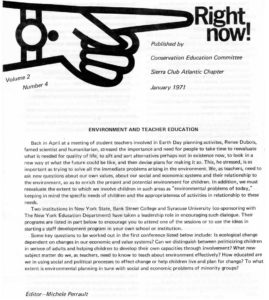
Perrault was born in the Bronx, New York on May 8, 1941. She attended the High School of Music & Art in New York City, depicted later in the television series Fame. After a stint as one of the first women to attend the SUNY College of Environmental Science and Forestry, Perrault received her B.A. from Hunter College. Perrault’s Sierra Club activism began in the late 1960s when she was recruited to the Club’s Atlantic chapter by pioneering environmental lawyer, David Sive, whose children Perrault taught in her science classroom. Perrault quickly became chair of the chapter’s education committee and initiated a newsletter to communicate environmental information and share opportunities for activism, a practice she would replicate years later as International Vice President of the Sierra Club. Copies of Right Now, Perrault’s environmental education newsletter for the Club’s Atlantic Chapter, as well as a copy of her later International Activist, the online newsletter of the national Sierra Club’s International Committee, appear in an appendix to her oral history.
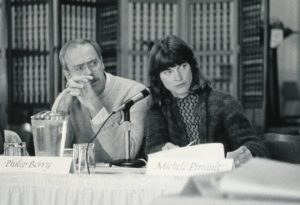
Perrault volunteered with the Sierra Club for many decades at every level, including as chair of various local, regional, and national committees. With her acute intelligence, deep curiosity, and exuberant energy, she honed expertise in a wide variety of issues: from off-shore drilling to solid waste treatment; from corporate fundraising to political lobbying; from the endangered tigers of India to the protection of wild places in Antarctica. In the 1970s, Perrault lead campaigns in Massachusetts against off-shore drilling and its on-shore effects, at one point garnering publicity for hanging dead fish from the window of the campaign’s headquarters. Perrault met fellow Sierra Club leader Phillip Berry at a national Sierra Club council meeting and, in 1978, moved to California where they were married. Beginning in 1981, Perrault won multiple elections to the Club’s national board of directors on which she served through 2001, including her two terms as Sierra Club president. Perrault also served as a board member of Earth Team, Green Seal, and Greenbelt Alliance. Her lifetime of environmental activism includes three U.S. Citizen Advisory Commissions under three different U.S. presidents, as well as appointment by the U.S. Department of State as a delegate to several Arctic Treaty Consultative Meetings in locations around the world.
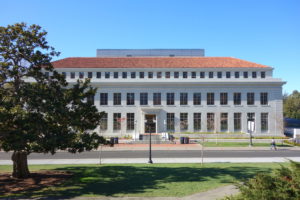
Perrault’s oral history is the newest addition to the Sierra Club Oral History Project, an enduring partnership between the Sierra Club and the Oral History Center of The Bancroft Library. Initiated in 1970, amid an upsurge of environmental activism that produced the first Earth Day and codified a suite of new legal statutes, the Sierra Club Oral History Project now includes accounts from over one hundred volunteer leaders and staff members active in the Club for more than a century. Varying from only one hour to over thirty hours in length, these interviews highlight the breadth, depth, and significance of eclectic environmental efforts in both the national Sierra Club and the Club’s grassroots at regional and chapter levels—from education to litigation to legislative lobbying; from wilderness preservation to energy policy to environmental justice; from outdoor adventures to climate change activism to controlling chemicals; from California to the Carolinas to Alaska and beyond to international realms.
Together with the sizable archive of Sierra Club papers and photographs also in The Bancroft Library, the Sierra Club Oral History Project offers an extraordinary lens on the evolution of environmental issues and activism over the past century, as well as the motivations, conflicts, and triumphs of individuals who helped direct that evolution. The full-text transcripts of all interviews in the Sierra Club Oral History Project, including this interview with Michele Perrault, can be found online via the Oral History Center website.
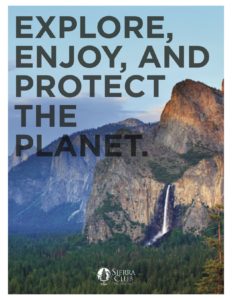
The Oral History Center extends great thanks to all narrators who, since the early 1970s, shared their precious memories in the Sierra Club Oral History Project. We also thank the Sierra Club board of directors for recognizing early on the long-term importance of preserving the Club’s history and its evolution; to the past members of the Sierra Club’s History Committee, especially its founding chair Marshall Kuhn; to special donors who provided funding for individual Sierra Club oral history interviews; and to the trustees of the Sierra Club Foundation for providing the necessary funding to initiate, expand, and more recently renew this oral history project. Much appreciation goes to staff members of the Sierra Club and the Sierra Club Foundation who helped make these oral histories possible, most recently and notably to Therese Dunn, librarian of the William E. Colby Memorial Library at the Sierra Club’s headquarters in Oakland. Special thanks, too, to all prior oral history interviewers, most importantly to Ann Lage for her more than three decades of exceptional work on this project.
I am grateful and excited to conduct new oral histories with leaders of the Sierra Club, one of the most significant environmental organizations in history. And I deeply appreciate the narrators, like Michele Perrault, who welcome me into their homes, who set aside significant time to conduct these oral histories, and who, in the process, share their meaningful memories of protecting the planet for all of us to explore and enjoy.
Roger Eardley-Pryor, Ph.D.
Historian and Interviewer, Sierra Club Oral History Project
Oral History Center of The Bancroft Library